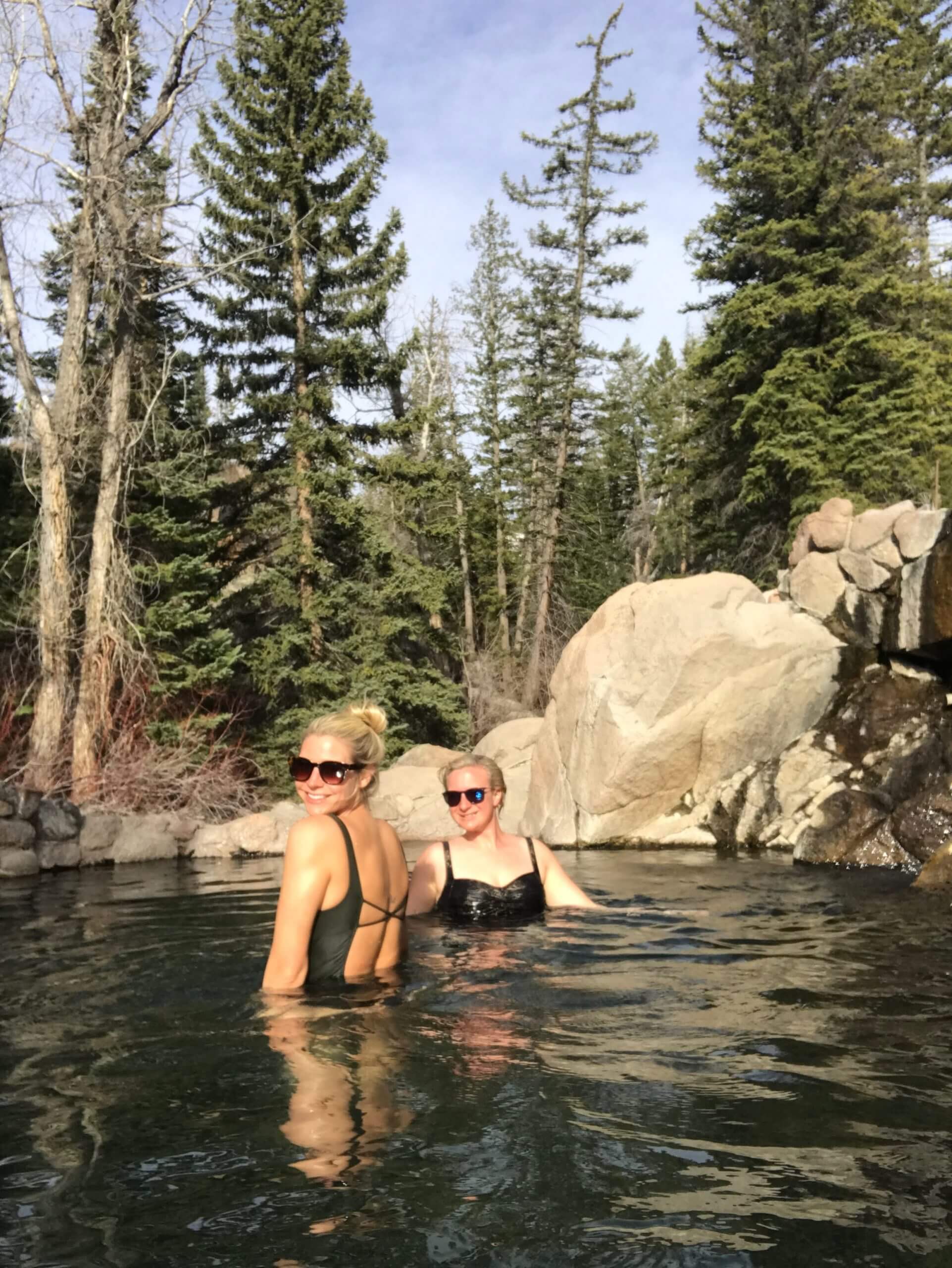
Let’s Crush Our Resolutions with SMART Goals & Habits
Good morning, good afternoon, and Happy new year folks.
I think I speak for all of us when I say Bring. IT. On.
2021 was good to me, but I am not at all sad to see it go. It felt almost like a transitional year. We got used to this Pandemic world. The wounds of 2020, and the accomplishments too, faded into normalcy. I’m thrilled to enter a new chapter in 2022. With the year winding down, and the dawn of a new year upon us, I’m thinking resolutions.
And while I always have plenty of goals I’m working toward and love the New Year’s resolution process, this year, I’m looking at things a little bit differently.
I was listening to a podcast recently (on time management of all things, don’t all roll your eyes in unison) and the speaker had some really interesting thoughts on resolutions that made me tip my head to one side. “Huh.” That makes perfect sense.
She talked about the difference between resolutions and goals. The reasons that so many resolutions fail—on average we stick to it until January 17.
A couple days later, listening to a different podcast (a favorite of mine- Hidden Brain) the host and guest were again talking goals. I guess it is kind of hard to avoid at this time of the year. And if you thought you were going to avoid it here on my blog, you thought wrong.
(I’ve linked all of the Podcasts mentioned at the end of this post, I recommend taking a listen!)
I don’t know about y’all, but my willpower has proved to be sluggish at best at accomplishing goals. Sometimes I can force myself to do the things I want to do, but often it doesn’t happen. The dishes need to be done! My flight schedule for next month must be made! The bills must be paid! I’m too tired. It seems like so many things in our lives are out to get our goals. I find that if I don’t set time aside (and be quite strict with taking it) that I never have the time to write, do yoga, meditate, run distance, work on my marketing strategy, update my website, stick to my budget, sleep 8 hours.
The things we really want to be doing, the things that make us feel like the best, truest version of ourselves, seem to be squished into tiny specks of moments by all the other responsibilities and tasks of day-to-day life. It’s kind of not fair. But we are the only ones who can do anything about it. The mountains of adulting tasks will never cease. But we can choose to make our important things a priority. If you don’t believe me, its okay, because I struggle so hard with this every day that it is hard for me to believe too.
In both these ‘casts, the subject was about resolutions, goals, and why they fail. It’s something like:
- They’re too big.
- They’re too vague
- We don’t have a plan
- We rely on willpower to get them accomplished
But I’m hoping that setting up my goals for the new year in a new way will help me out. So let’s take a look at why our resolutions fail and how we can do better.
Why Resolutions Fail
1. They’re too big.
“I’m going to become a famous author in 2022.” “I’m going to hike Mount Everest.” “I’m going make $1 million with my new business.”
Listen, these are all excellent goals. But if you haven’t written anything yet, if you have never hiked more than a 3-hour trail, if you haven’t earned your first profitable paycheck yet, then these goals might be too big for you.
2. They’re too vague.
“I’m going to be more mindful” “I’m going to write more.” “I’m going to be less wasteful.”
These are all previous resolutions of mine.
The problem here is there is no way to know you’re succeeding. There is nothing to measure against. “More” mindful than what? Compared against what? Less wasteful than I was before? And how do I quantify that? Is this on a day-by-day thing? Must I improve daily, weekly, or if I recycle one more bottle than last year is that sufficient to say I’ve succeeded?
3. We don’t have a plan.
In all of the above examples of resolutions, there is no game plan. How do I know how I will accomplish my resolution, when I don’t have any end point to reach. How do I accomplish writing more? Every day? Every week?
“I’m going to lose x pounds” is a common resolution.
Or worse, “I’m going to lose weight.”
Or even worse, “I’m going to get in shape”/ “I’m going to get healthy.”
What does healthy mean to you? What does in shape mean to you? More movement? More vegetables? Less processed food? More meditation? This is different for everybody, and if you don’t know what the actual goal is, then how can you possibly achieve it?
Wanting to lose a specific number of pounds is at least a goal we can measure our progress against. But if we don’t have a plan to achieve it, then how is it to be done? And that brings me to the fourth reason resolutions fail:
4. We rely on willpower.
We just assume that, equipped with our goal of X pounds lost, we will figure out a way to do it. We will just align all our actions because of our dedication and willpower. It will just “happen” because we really want it this time.
Then the birthday party comes and we are not about to say no to cake, we are too tired to cook, so we order pizza, we are too exhausted to go to the gym, so we skip it, or we just willy-nilly “do what we can” with no actual plan of how we will get there.
A better example for me is writing (because I don’t mess with pound counting). I am frequently in a state of self-loathing because I have not been able to will myself into “writing more”. I intend to every day, but something comes up. An immediate problem/task that needs to be addressed. A fight delay. A homework assignment. Trying to schedule a doctor’s appointment. Cleaning the house. Anything.
“I have no discipline,” I say.
“I am so bad at time management.”
And these things might be true, but they are true for most people. Some of us just set ourselves up for success better than others. By taking willpower out of the lead role.
So these are the problems, how can we fix it? How can we make better goals?
With the caveat that I am not an expert, here are some of the things I’ve heard work better.
A Better Way:
How To Stick Goals & Accomplish Resolutions
1.SMART Goals
Instead of making vague, big, no-plan, will-power-driven resolutions, we make SMART goals.
Specific– Clear, defined terms of what we’re doing.
Measurable– An amount, a number of times, a percentage
Attainable (or Adventurous)– No Everest on your first hike. Something doable (but not easy!) “Adventurous” goals are those that push us out of our comfort zone. A sales goal at work you have never hit before but if you really tried and succeeded you’d be so proud of. Running a marathon, when you’ve only run a 10K before. Going on a solo vacation. A “pusher” goal.
Relevant– The smaller weekly, monthly, yearly goals you set should be relevant to your life goals. How do you want your life to be? What are your values? Who is the person you are on the inside? How would it look if that person walked around in the real world? Don’t set goals for shit you don’t care about.
Time-Bound– A time limit to know if you’re on track and when you’ve succeeded. “By June”, “3x per week” are examples of time-boundaries you could wrap your goals in.
We’re not “Getting healthy”, we’re “Working out 3x per week in 2022.”
We’re not “Writing more.” We’re “Writing four hours per week.” Or “Writing 30 mins per day, 3x per week.” or “Writing every Monday”
Notice I’m not using “every day” as an example. You know yourself best, but for me an “every day” goal is simply not realistic. For anything.
2. Habits > Willpower
I’ve been reading and listening a lot about the power of habits. Maybe it is because I feel like it gives me (and my subpar willpower) a break, (“It’s not your fault, Tone.”) but it is totally making sense to me.
Research suggests that humans are NOT good at using willpower to accomplish our goals. To do the good things we want to do, nor to stop the not-so-great things we want to quit. Instead of trying to just force ourselves to do the right thing and then hating ourselves when we don’t, let’s try creating habits. Making those positive behaviors we want to do more automatic. We don’t think about brushing our teeth, we just do it. I hated flossing for years, but now it is a habit that I do (almost) every day. I found it difficult to make time to write for many years—the biggest reason for my starting this blog was to “have a reason to write more.” I recognized that my own wishes to do it would not necessarily get the thing done.
After starting the blog, it still was not consistent. A post when I got around to it, maybe every 2 weeks, maybe every 3, maybe two posts just a few days apart, if I was feeling extra wordy. I was writing more, but I still had not achieved the goal of writing consistently.
In April of 2020, I decided that I would get consistent, and the only way I could do it was with deadlines.
I’ve found that the only sure-fire way to get myself to meet a time-centered writing goal was to ha to met a writing goal was through deadlines.
I used to write for an LGBTQ news and entertainment publication. I had to schedule my interviews and write news articles for the web. I was frequently writing the night before and the morning of deadline. But it got done. Always. Whereas the personally important writing I wanted to do—the soul-filling stuff—never seemed to fit into my busy schedule.
In April of 2020, I implemented a system. I publish on Thursdays. Every Thursday. With that, I had a deadline, and a set number of posts to publish per week and per month. It took the thinking out of it. “How often should I write?” “When should I publish this?”
In the one year and eight months since then, there have been a total of four Thursdays that I have not published a post. This deadline creation has been wildly successful/helpful for me. I have produced more content in the past year and a half than in the five (or more) years prior combined. And it’s not as if I suddenly wanted to write. The desire to write has been the same since I was a kid. I just got, you know, busy in adulthood.
What if we could make more of our goals into habits? Take the decision-making (my least favorite thing in the world) out of it, and make it automatic? A non-negotiable. Forming habits takes some time, but once they are engrained it’s pretty simple to follow them.
I’m supposed to be finishing a 20-page final paper for my business class and submitting it today. But it is Wednesday, and tomorrow is my deadline, so I’m writing this first. What started out as a personal passion project—this blog—I now run more like a job. Whether I should show up this week with new content is not something I think of. I just do it. And the increase in output, and my increase in readership, shows me that this system is working far better than my “willpower” was.
Making a Habit
Forming a habit, the experts say, is broken into 3-4 steps.
- A Cue
- The Act
- A Reward
Don’t we love when rewards are built in?
For example, if your goal is to run a marathon, you’ll need to make running a habit (if you haven’t already.) You might set out your sneakers and running outfit the night before. When you wake up in the morning and don’t necessarily feel like running, seeing the gear out will send a cue that it’s time to hit the pavement. You’ve made it easy for yourself and given a reminder. The act is the run. And the reward could be the endorphins you get, an extra long hot shower after, or maybe a stop at your favorite smoothie shop after.
If your goal is to integrate writing into your daily life—say “Write for one hour 3x per week”, you might make your cue might be an alarm that says “Time to write!”. The act, sitting down and writing for an hour. And the reward could be something like a tasty latte to sip while you write, or only watching your favorite Netflix show on those nights that you have written. It’s not about punishing yourself when you haven’t done the thing, but rewarding yourself for a job well done will help you stick to those behaviors. Then you can turn them into habits and it will make it one MILLION times easier to accomplish your goals. You totally deserve rewards AND to accomplish your goals and live your dream life.
Remember, these goals are things you want to do. Help yourself out by trying out these tricks.
So, tell me.
Are you making New Years resolutions this year?
Or maybe some SMART goals? One of the podcasters I mentioned said that she makes a list of goals before the new year. Four goals for each category: Personal, Professional, Fun, and Financial.
This sounded like a really good idea to me. I have tons of goals, but organizing them in this way—and making them SMART—could help me to actually accomplish some of them. Or at least stay on the right track(s).
I’m not sure if New Years resolutions are things we share with people or keep close. I’m tempted to put them here for accountability, or to share more examples of the SMART goal-making process, but I also hesitate. As much as I share with you all, it feels really intimate to share my deep desires and hopes for my future. Am I being a baby? Or are Resolutions like the wishes you make when blowing out the candles on your birthday cake—best kept to yourself?
Let me know what you guys think about this, and if resolutions (and goals) are shareable, then let me know yours! I love hearing other people’s goals so I can cheer them on from the sidelines! All the podcasts I mentioned are linked below in case you want to listen.
Here’s hoping that every one of you achieves your wildest dreams.
Happy New Year, guys <3

For more resources on habit building check out these podcast episodes or some literature:
Hidden Brain: Creatures of Habit
It’s About Time: Get SMART: Why Goals & Good Habits Beat New Years Resolutions Every Time
On Purpose with Jay Shetty: 7 of My Best Time Management Habits to Help You Do and Create More in Less Time



Rae
Wow Tone, this was so motivating! Seriously. Thank you!
Sheila
This is exactly what I needed to learn about today! Am so glad I randomly got to this blog post after researching things to do in Arizona. Am inspired by your resolutions & appreciative of the links! Best wishes !
Toni
Hey Sheila! Sorry I’m just getting back to this comment. It was buried in a mountain of spam! I’m so glad you stopped by and liked what you saw! I hope you have a great trip to AZ! Thanks for saying hi. 🙂